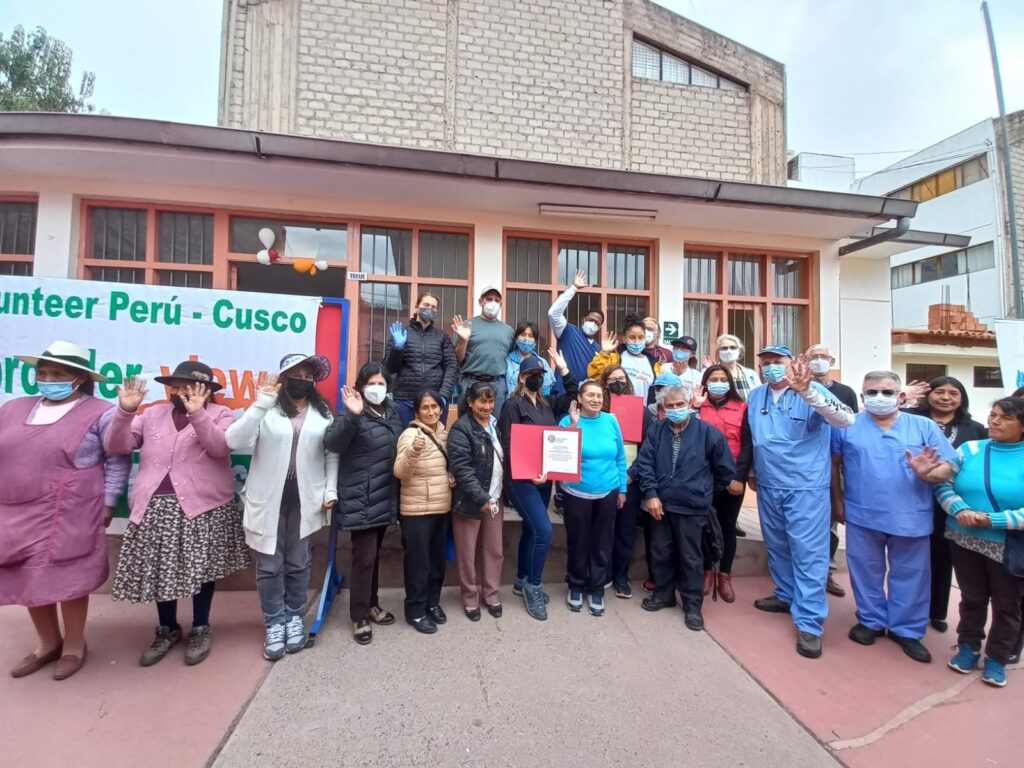Welcome to the world of humanitarian travel, where you can embark on impactful journeys that make a difference in the lives of others. This article will guide you through the ins and outs of global humanitarian travel and show you how to maximize your impact along the way.
Whether you’re a seasoned traveler looking to give back or someone who wants to explore the world while making a positive contribution, humanitarian travel offers a unique and fulfilling experience. It allows you to connect with local communities, understand their challenges, and work together to create sustainable solutions.

But before we dive into the details, let’s take a moment to understand what exactly humanitarian travel is and why it is so important in today’s world. So, buckle up and get ready for an exciting journey of discovery and impact!
Understanding Humanitarian Travel
Definition and Purpose
Humanitarian travel refers to traveling with the intention of providing assistance and support to communities and individuals in need around the world. It goes beyond solely indulging in leisure or tourism activities; instead, it involves actively participating in projects and initiatives that aim to alleviate poverty, improve healthcare, education, and overall well-being of marginalized communities.
The purpose of humanitarian travel is to make a positive impact on the lives of others and contribute to the larger goal of creating a more equitable and just world. It involves engaging in meaningful work that addresses the root causes of social issues and helps empower communities to become self-sustainable.
Importance of Humanitarian Travel
Humanitarian travel is not only beneficial for the communities being served but also for the volunteers themselves. Here are some reasons why humanitarian travel is important:
- Global Perspective: Humanitarian travel allows individuals to gain a deeper understanding of global issues and challenges faced by communities outside their own. It broadens one’s perspective and fosters cultural sensitivity and empathy.
- Skill Development: Engaging in humanitarian work provides opportunities for personal and professional growth. Travelers can develop a wide range of transferable skills such as leadership, problem-solving, adaptability, and collaboration.
- Intercultural Exchange: Humanitarian travel offers the chance to interact with people from different cultures and backgrounds, fostering mutual understanding and appreciation.
- Creating Lasting Impact: By actively participating in projects and initiatives, volunteers can directly contribute to the sustainable development of communities, leaving a lasting impact.
- Building Lifelong Connections: Humanitarian travel provides the opportunity to meet like-minded individuals from all over the world, fostering connections and friendships that can last a lifetime.
- Personal Fulfillment: Helping those in need and witnessing the positive impact of one’s efforts can bring a sense of fulfillment and purpose.
Humanitarian travel is a transformative experience that not only benefits the communities being served but also enriches the lives of those who participate. It is a way to make a tangible difference in the world while gaining invaluable personal and professional experiences.
Selecting the Right Humanitarian Organization
When it comes to embarking on a humanitarian journey, selecting the right organization to work with is crucial. The organization you choose will not only determine the nature of your experience but also the impact you can make in the community you visit. Here are some key factors to consider when selecting a humanitarian organization:
Researching Different Organizations
Before making a decision, take the time to research and explore different humanitarian organizations. Look for reputable organizations with a track record of successful projects and positive impact in the communities they serve. Read reviews, testimonials, and case studies to get a better understanding of their work and results.
Evaluating Mission and Values
The mission and values of the organization should align with your own beliefs and principles. Consider what issues and causes are important to you and find an organization that shares your passion. This alignment will help in creating a meaningful and fulfilling experience for you as well.
Assessing Project Opportunities
Look into the types of projects and initiatives the organization is involved in. Consider whether these projects align with your skills, interests, and expertise. Assessing the project opportunities will help ensure that you can contribute effectively and make a real difference during your time abroad.

Once you have narrowed down your options, it’s a good idea to reach out to the organizations directly. This will give you an opportunity to ask questions, clarify any doubts, and get a better sense of their work and values. Remember, choosing the right organization is a personal decision, so take the time to find one that resonates with you.
“When selecting a humanitarian organization, it’s important to consider not only their track record but also their mission and values. Find an organization that aligns with your beliefs and offers project opportunities that match your skills and interests.”
Preparing for Humanitarian Travel
Preparing for a humanitarian trip is an essential step in ensuring a safe and impactful journey. It involves gathering the necessary information, documents, and skills to navigate the new environment while respecting the local culture and traditions. Here are some important considerations to help you prepare for your humanitarian travel:
Understanding Cultural Sensitivity
One of the first aspects to consider when preparing for humanitarian travel is understanding cultural sensitivity. Recognizing and respecting the local customs, traditions, and social etiquette is crucial in building positive relationships with the communities you will be working with. Here are a few tips to keep in mind:
- Research: Take the time to learn about the cultural norms, values, and beliefs of the destination country. This will help you understand the local context and avoid unintentionally offending anyone.
- Dress Appropriately: Dress modestly and respectfully, following the local norms. This may include covering your shoulders, wearing long pants or skirts, or removing footwear in certain settings.
- Be Mindful of Body Language: Gestures and body language can vary across cultures. It’s important to be aware of how your actions may be perceived and adapt accordingly.
- Use Local Greetings: Learning a few basic greetings or phrases in the local language can go a long way in showing respect and building rapport with the locals.
Obtaining the Required Travel Documents
Before embarking on your humanitarian journey, you need to ensure you have all the necessary travel documents in order. Here are some important documents to take into consideration:
- Passport: Check the validity of your passport and ensure it has at least six months remaining before it expires. Some countries may also require a visa, so make sure to research the visa requirements well in advance.
- Travel Insurance: Look into travel insurance options that cover medical emergencies, trip cancellations, and any other unforeseen circumstances. It’s essential to have adequate coverage to protect yourself during your journey.
- Immunizations: Research the required immunizations for your destination country and make sure you are up-to-date with all necessary vaccinations. Some countries may also require a certificate of vaccination, so be sure to carry the relevant documentation.
- Emergency Contact Information: Keep a list of emergency contact numbers, including the local embassy or consulate, in case of any emergencies or unforeseen situations.
Health and Safety Considerations
Your health and safety should be a top priority when preparing for humanitarian travel. Here are some important considerations to keep in mind:
- Medical Check-Up: Schedule a medical check-up with your healthcare provider to ensure you are in good health and up-to-date on any necessary vaccinations.
- Medication and First Aid: Bring any necessary medications with you, along with a well-stocked travel first aid kit. It’s also a good idea to familiarize yourself with basic first aid procedures.
- Travel Alerts and Advisories: Stay informed about any travel advisories or alerts for your destination. Check the official government travel website or consult with your travel agency for the most up-to-date information.
- Emergency Evacuation Plan: Familiarize yourself with the emergency evacuation procedures in case of natural disasters, political instability, or any other unforeseen events. Have a plan in place and make sure your friends or family are aware of your itinerary.
Language and Communication
Having basic language skills can greatly enhance your experience during humanitarian travel. Here are some tips for navigating language barriers:
- Learn Basic Phrases: Take the time to learn a few basic phrases in the local language. This can help you communicate essential needs and show respect to the locals.
- Use Translation Apps: Utilize translation apps or dictionaries to assist with communication. These can be helpful when trying to convey more complex ideas or when facing language barriers.
- Non-Verbal Communication: Non-verbal cues, such as gestures and facial expressions, can help bridge communication gaps. Pay attention to body language and be patient and understanding when trying to communicate.
- Work with Local Translators: In situations where language barriers are significant, consider working with local translators or interpreters. They can facilitate effective communication and ensure that your message is accurately conveyed.
Preparing for humanitarian travel requires careful planning and consideration. By understanding cultural sensitivity, obtaining the necessary travel documents, prioritizing health and safety, and addressing language barriers, you can set yourself up for a successful and impactful journey. Remember, every step you take to prepare ensures that you can make a positive impact on the communities you visit.
Making an Impact during Your Journey
When embarking on a humanitarian travel journey, the goal is to make a positive and lasting impact in the communities you visit. Here are some key ways to ensure that your journey is impactful:
Working Collaboratively with Local Communities
One of the most important aspects of making a meaningful impact is to work hand in hand with the local communities. Rather than imposing solutions, it’s essential to listen to their needs and collaborate on finding sustainable solutions. By involving the community in decision-making processes, you can ensure that your efforts align with their specific needs and aspirations.
Adapting to Local Customs and Traditions
Respecting and embracing local customs and traditions is crucial in creating a positive impact. By understanding and appreciating the local culture, you can build trust and establish meaningful connections with the community members. This openness and respect will allow you to foster relationships built on mutual understanding and cooperation.
Utilizing Transferable Skills
One of the valuable aspects of humanitarian travel is the opportunity to utilize your own skills and expertise to benefit communities in need. Identify your strengths and find ways to apply them in projects that align with your expertise. Whether you have teaching skills, medical knowledge, or construction experience, your expertise can contribute to meaningful change and sustainable development.
Building Sustainable Solutions
Sustainability should be at the core of any impact-driven journey. Rather than providing short-term fixes, aim to create long-lasting solutions that empower communities to thrive even after you leave. This can involve capacity-building initiatives, education programs, or implementing sustainable income-generating projects. By focusing on sustainability, you can make a lasting impact that goes beyond your time on the ground.
“Success is not about how much impact you can make in a short amount of time, but rather about how much sustainable change you can bring about.” – Anonymous
Making an impact during your humanitarian travel journey requires dedication, open-mindedness, and a genuine desire to create positive change. By working collaboratively with local communities, adapting to their customs, utilizing your skills, and building sustainable solutions, you can leave a lasting impact and contribute to the betterment of the world.
Now that we’ve explored how to make an impact during your journey, let’s delve into the challenges and rewards of humanitarian travel.
Challenges and Rewards of Humanitarian Travel
Embarking on a humanitarian travel journey can be a life-changing experience. While it brings immense rewards and personal growth, it also comes with its fair share of challenges. Let’s take a closer look at the challenges and rewards of humanitarian travel:
Overcoming Language and Cultural Barriers
One of the biggest challenges of humanitarian travel is navigating language and cultural barriers. When you travel to a new country, especially in remote or rural areas, you may encounter people who speak a different language or have different customs and traditions. This can make communication and collaboration difficult. However, with patience, humility, and a willingness to learn, you can overcome these barriers. Take the opportunity to learn some basic phrases in the local language and show respect for the local culture. This will not only help you connect with the community but also deepen the impact of your work.
Dealing with Emotional Challenges
Humanitarian travel can be emotionally demanding. As you witness the hardships and struggles of the communities you serve, it’s natural to feel a range of emotions, including sadness, frustration, and helplessness. It can be challenging to see the suffering firsthand and not have the ability to solve all the problems. It’s important to take care of your mental well-being during your journey. Seek support from fellow travelers, local staff, or even professional counselors if needed. Remember that it’s okay to feel overwhelmed, and your emotions can be channeled into positive action.
Personal and Professional Growth
Despite the challenges, humanitarian travel offers incredible opportunities for personal and professional growth. You will expand your horizons, gain a deeper understanding of global issues, and develop a more empathetic mindset. Immersing yourself in a new culture and working alongside local communities will broaden your perspective and enhance your problem-solving skills. Humanitarian travel pushes you out of your comfort zone, allowing you to discover strengths and capabilities you never knew you had.
Building Lifelong Connections
One of the most rewarding aspects of humanitarian travel is the chance to build lifelong connections with both the local community and fellow travelers. You will forge bonds with people who share your passion for making a difference in the world. These connections can extend beyond your journey and become a valuable network of support, inspiration, and collaboration. The friendships and relationships you form during your humanitarian travel will not only enhance your personal life but also open doors for future opportunities.
Humanitarian travel is not without its challenges, but it is a profoundly rewarding and impactful experience. By embracing the challenges and focusing on the rewards, you will come out of your journey with a deeper understanding of the world, personal growth, and lifelong connections. Are you ready to take the leap and embark on a transformative journey? Let the rewards of humanitarian travel fuel your passion for making a difference!
Promoting Responsible Humanitarian Travel
Responsible humanitarian travel is not just about embarking on a journey to make a difference in the world; it’s also about ensuring that the impact we have is positive and sustainable. By promoting responsible humanitarian travel, we can help create a more ethical and impactful approach to volunteerism and service. Here are some ways you can contribute to promoting responsible humanitarian travel:
Sharing Authentic Experiences
One of the most effective ways to promote responsible humanitarian travel is by sharing your authentic experiences with others. By sharing what you’ve learned and the impact you’ve made, you can inspire and educate others about the importance of responsible volunteering. Whether it’s through writing blog posts, sharing on social media, or giving presentations, your stories can help dispel misconceptions and myths surrounding humanitarian travel.

Raising Awareness through Social Media
Social media is a powerful tool for raising awareness about responsible humanitarian travel. You can use platforms like Instagram, Facebook, and Twitter to share stories from your journey, showcase the projects you’ve worked on, and highlight the organizations you’ve partnered with. By using hashtags and engaging with others who are interested in humanitarian travel, you can amplify your message and reach a wider audience.
Encouraging Ethical Volunteering Practices
It’s important to encourage ethical volunteering practices within the community of humanitarian travelers. This includes ensuring that volunteering opportunities are well-planned, structured, and aligned with the needs and priorities of the local communities. You can advocate for responsible volunteering by supporting organizations that have a strong track record of sustainable development, community engagement, and cultural sensitivity.
By promoting responsible humanitarian travel, we can ensure that our efforts have a lasting and meaningful impact on the communities we aim to serve. It’s about approaching volunteering with humility, respect, and a genuine desire to make a positive difference. Let’s work together to create a world where humanitarian travel is not just about good intentions but about responsible and impactful action.
“The best way to find yourself is to lose yourself in the service of others.” – Mahatma Gandhi
Conclusion
In conclusion, humanitarian travel offers a unique opportunity for individuals to make a positive impact on communities in need around the world. By selecting the right humanitarian organization, preparing properly, and embracing the challenges and rewards of the journey, volunteers can ensure their efforts are impactful and sustainable.
Humanitarian travel is not just about ticking off a bucket list item; it is about making a difference and leaving a lasting impact on the lives of others. Through collaborative work with local communities, adapting to local customs and traditions, and utilizing transferable skills, volunteers can contribute to the development of sustainable solutions that empower communities and promote long-term growth.
While humanitarian travel comes with its challenges, such as overcoming language and cultural barriers and dealing with emotional challenges, the rewards are immeasurable. It provides an opportunity for personal and professional growth, as well as the chance to build lifelong connections with people from diverse backgrounds.
As responsible travelers, it is important to promote ethical volunteering practices and share authentic experiences. By using social media platforms to raise awareness and educate others about the impact of humanitarian travel, we can inspire more people to get involved and make a difference.
So, if you have a passion for helping others, a desire to immerse yourself in different cultures, and a willingness to make a meaningful impact, humanitarian travel is the perfect avenue for you. Start researching different organizations, evaluating their mission and values, and assessing project opportunities to find the right fit for your skills and interests. Get ready to embark on a journey that will not only change the lives of others but also transform your own.
Frequently Asked Questions
- What is humanitarian travel?
Humanitarian travel refers to travel that is undertaken for the purpose of providing assistance and support to communities in need, often in areas affected by crises such as natural disasters, conflicts, or poverty.
- What is ABV and how is it related to humanitarian travel?
ABV, short for A Broader View Volunteers, is a nonprofit organization that offers volunteer travel programs for individuals who want to make a positive impact in communities across the globe. ABV facilitates meaningful and impactful journeys for volunteers in various humanitarian projects.
- What kind of projects can I get involved in through ABV’s humanitarian travel programs?
ABV offers a wide range of projects that volunteers can get involved in, including community development, education, healthcare, environmental conservation, women empowerment, and orphanage support, among others. Volunteers can choose a project that aligns with their skills, interests, and desired impact.
- How can humanitarian travel contribute to making a difference?
Humanitarian travel allows individuals to directly contribute to improving the lives of people in need by volunteering their time, skills, and resources. It provides an opportunity to collaborate with local communities, learn about different cultures, and create sustainable change.
- Do I need any specific skills or qualifications to participate in ABV’s humanitarian travel programs?
No specific skills or qualifications are required to participate in ABV’s humanitarian travel programs. However, having certain skills, such as medical or teaching experience, can be an advantage in some projects. ABV welcomes individuals with a passion for helping others and making a difference.
-
Volunteering Abroad with Medical Missions: Make a Difference Today

Join medical group trips, Nurses Without Borders, and Dentists Without Borders to make a difference in underserved communities worldwide. Learn about the countries where these programs operate and read real-life experiences from volunteers. Volunteering overseas is an excellent opportunity to make a difference in the lives of others while experiencing new cultures and forging unforgettable…
-
Embrace Overseas Service | Transform Lives Through Global Volunteerism

International Volunteering: Discover Meaningful Travel and Transform Lives with A Broader View
-
A World of Opportunities: Unveiling the Benefits of International Volunteer Programs

Discover numerous benefits of international volunteer programs and unleash a world of rewarding opportunities with our in-depth guide.



